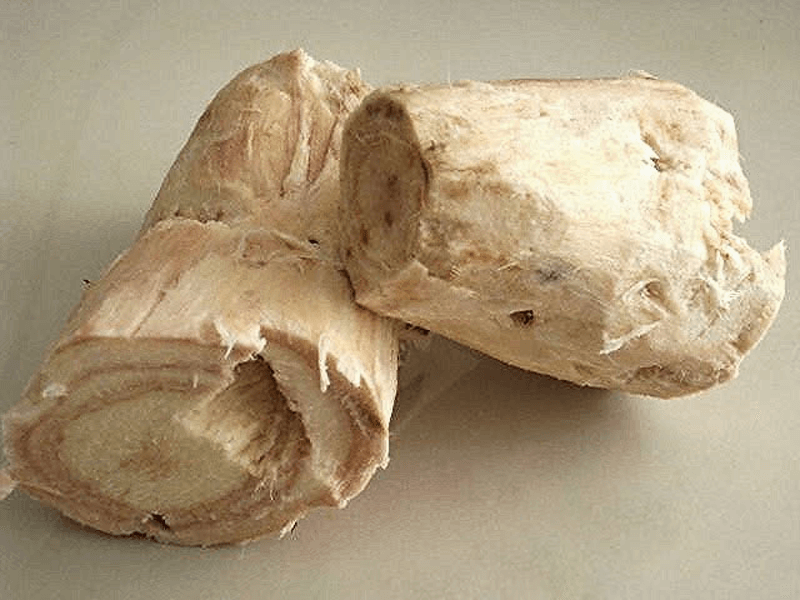Why do we need flavone and flavonoids?Kudzu Root Extract
Flavone are a group of plant substances that enter the human body with food, affect the activity of many enzymes and are widely used as official and folk medicine as medicines.
Flavonoids: traditions and modernity
The ability of red grapes to improve digestion, as well as the "gift" of blueberries to increase visual acuity, are known to people from time immemorial. However, only in the middle of the 20th century it became known that the pharmacological mechanisms of action of both named and many other medicinal plants are associated with a high content of flavonoids in them - a group of substances that play one of the most important functions in regulating the life cycle of plants.
So, it is the flavonoids that determine the coloration of flowers and berries. In addition, these substances are involved in photosynthesis, protect plant cells from the excess of ultraviolet radiation in the summer, and are necessary for such processes of preparing plants for colds, like falling leaves and "conservation" of the kidneys.
Numerous studies have shown that flavone are biologically active compounds for humans, although they are not produced in animals.
Flavonoids in official medicine
Scientifically proven the ability of many flavonoids to regulate the permeability of the walls of blood vessels and improve their elasticity, as well as prevent sclerotic lesions.
The most famous of the flavonoids, which has a beneficial effect on the vessels - it's routine (sometimes it's also called vitamin P or C2). This flavonoid (or its synthetic analog) is part of many drugs that reduce the fragility of capillaries - for example, such as ascorutin (Ascorutinum).
However, studies have shown that more than a hundred flavonoids possess characteristics similar to routine! They are abundant in products such as green tea, cocoa, quince, apples, apricots, peaches, strawberries, currants, raspberries, etc.
Pharmacologists and the extract of blueberries are quite widely used, containing up to 25% of the so-called anthocyanins (flavonoids, which in plants play the role of pigments). The bilberry extract rich in flavonoids is used as a mild diuretic, with cardiovascular diseases, varicose veins and in complex therapy of processes associated with degeneration of the retina.
Flavonoids and experimental studies
It has been proved that flavonoids, which are found in the skin of grapes and apples of red varieties, garnets, cherry, eggplants, red cabbage and other fruits and vegetables, colored in violet, as well as in green tea and citrus peel, have antioxidant effect.
In the human body, they are able to perform the same function as in plants - flavonoids neutralize free radicals (which are formed under the influence of ultraviolet radiation and radiation), protecting cells from the destruction of membranes and intracellular structures. Therefore, natural extracts of flavone in moderate doses are recommended for people who live in areas with an increased radiation background: the zone of the Chernobyl disaster, high altitude areas, etc.
The same flavonoids are able to protect tissues from damage caused by excessive release of so-called histamines (substances released during inflammatory processes and allergies), which gives additional opportunities in the treatment of asthma and allergic reactions.
Flavonoids and alternative medicine
There are a lot of biologically active additives, which are made on the basis of plant extracts rich in flavone. Thanks to the antioxidant effect of flavonoids, like dietary supplements are attributed to the property of slowing down aging and preventing the occurrence of malignant tumors.
However, it should be recognized that modern science is still very far from a clear understanding of the mechanisms of aging and malignant degeneration of cells. Therefore, while there is no reliable information about the role of free radicals in these processes, and exactly how flavonoids can help in the fight against old age and cancer, there is no.
Flavone: How much should I consume?
You should not worry that large amounts of flavonoids can adversely affect your health. Our body has perfect mechanisms for regulating the content of flavonoids, so their excess will be quickly removed from the body without causing harm to health.
The danger can only be concentrated extracts with a high content of flavonoids, which are part of the medicines and dietary supplements. In this case, you should clearly adhere to the recommendations of the doctor or at least the dosages and timing of admission, given in the instructions to the drug.



 Healthier Future
Healthier Future